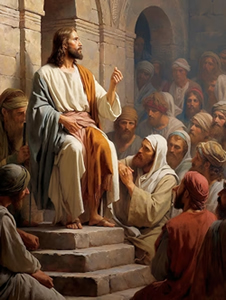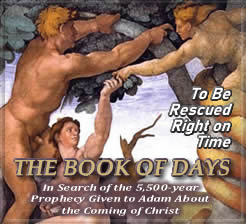Misconception #41 (Cont’d)
Jesus was Just a Poor Carpenter’s Son before His Real Ministry Began
If Joseph, the father of Jesus, had been a poor man, as tradition portrays him, he certainly wouldn’t have bothered to journey, with his wife about to give birth, all the way to Bethlehem just to pay taxes. A poor man wouldn’t worry about his little pittance of a tax payment, knowing full well it wouldn’t be missed. Only a wealthy man would’ve expected his absence to be noticed at tax time—something that also explains why he tried to rent a room at the inn. That none were available speaks more to the fact that everyone was in town during the busy tax season, as opposed to their family being too poor to afford such a luxury. If they’d been as destitute as tradition has them, they would’ve simply set up camp in the first available location rather than try to rent a room for the night.
Similarly, the arrival of the Three Wise Men testified to another fact concerning the elevated status of Joseph and his family: Not only were they rich, but they were also born of royal blood. How odd that most people who assume Jesus and His parents were poor vagabonds neglect the details provided by Scripture confirming this. The Wise Men went first to Herod announcing they were looking for the Child Who they thought would be the next king of the Jews.1 And they weren’t the only ones who knew about the prophecy of His birth. When Herod questioned his own wise men about where this Child was supposed to be born, they told him, quite matter-of-factly:
“In Bethlehem of Judah,” they replied. “Because it was written by the prophet: And you Bethlehem, in the land of Judah, who is the least among the princes of Judah, out of you will come a Governor that will rule my people Israel.”2
So, far from being considered a pauper’s son, Jesus, right from the start, was known to have been born into a family of considerable note. Only centuries of disinformation, wrought by revisionist historians in some misguided attempt to make a good story even better, have muddied the waters.
Story Continues Below
Says Richard Price—the founder and CEO of Academia.edu—on his podcast In Depth With Academia:
Fish Tales (From the Belly of the Whale): Fifty of the Greatest Misconceptions Ever Blamed on The Bible is:
To hear Price’s book review of Fish Tales (From the Belly of the Whale), CLICK HERE.
To hear Kent and Zen Garcia talk about correcting biblical misconceptions, from June 23rd, 2021, CLICK BELOW.
Story Continues From Above
Next comes the legend that reduced Jesus to the status of a mere carpenter. Again, we’re confronted by the same forces that try to persuade us that Jesus was born into a poor, lowly family.
After all, what makes a better story than that? I mean, if Abraham Lincoln can go from reading by candlelight in a log cabin to the highest office in the land, then why can’t our Lord and Savior go from lying in a manger to the throne of Heaven? Now that’s what I call living the American Dream.
If Jesus were portrayed as a simple woodworker, then His rise to power would seem all the more miraculous, wouldn’t it? Never mind that Jesus spoke less of His work as a carpenter, choosing instead to emphasize His role as a master builder and stonemason. Never mind about what He told us in The Gospel of Matthew.
“Have you never read in the Scriptures,” asked Jesus, “that the Stone which the builders rejected, the same has become the Chief Cornerstone? This is the Lord’s doing, and it’s marvelous in our eyes! And whoever falls on this Stone shall be broken, and on whomever it falls, it will grind them to powder.”3
And again:
When Jesus departed the Temple, His disciples arrived to inquire about His thoughts concerning its structure. And Jesus said to them: “Do you see all this? I’m telling you, here and now, there won’t be a single stone used to build this place that won’t be torn down.”4
Then, as if to confirm His preoccupation with stonework, Luke recorded his own take on the subject.
And when the crowds saw Jesus coming their way, they sang out their praises, but the Pharisees amongst the group, told Him to rebuke them. To which Jesus replied that if they did hold back their adulation even the stones would offer Him praise.5
Some scholars believe that Jesus wasn’t speaking of some random pile of stones lying about the road somewhere, but that He was actually speaking—though in veiled terms—of the greatest megalithic monument ever built. The stones He was talking about were the ones used to construct The Great Pyramid of Giza, which has been demonstrated—via more than three and a half centuries of scholarship—to contain a biblically-inspired timeline of prophetic history. Said Joseph A. Seiss: “The numerical values … in the dimensions of The Great Pyramid’s construction, with its geometric proportions … speak as loudly as stones can be made to speak.”







